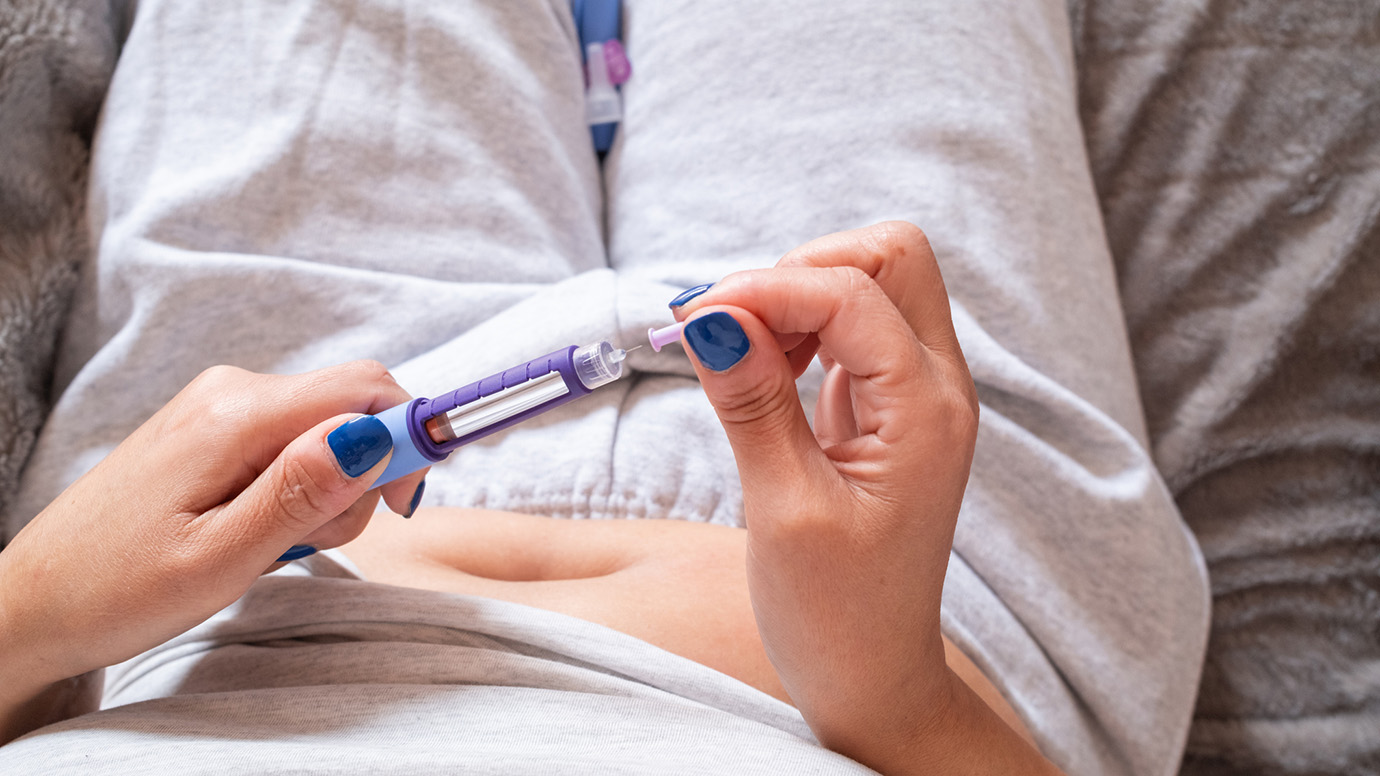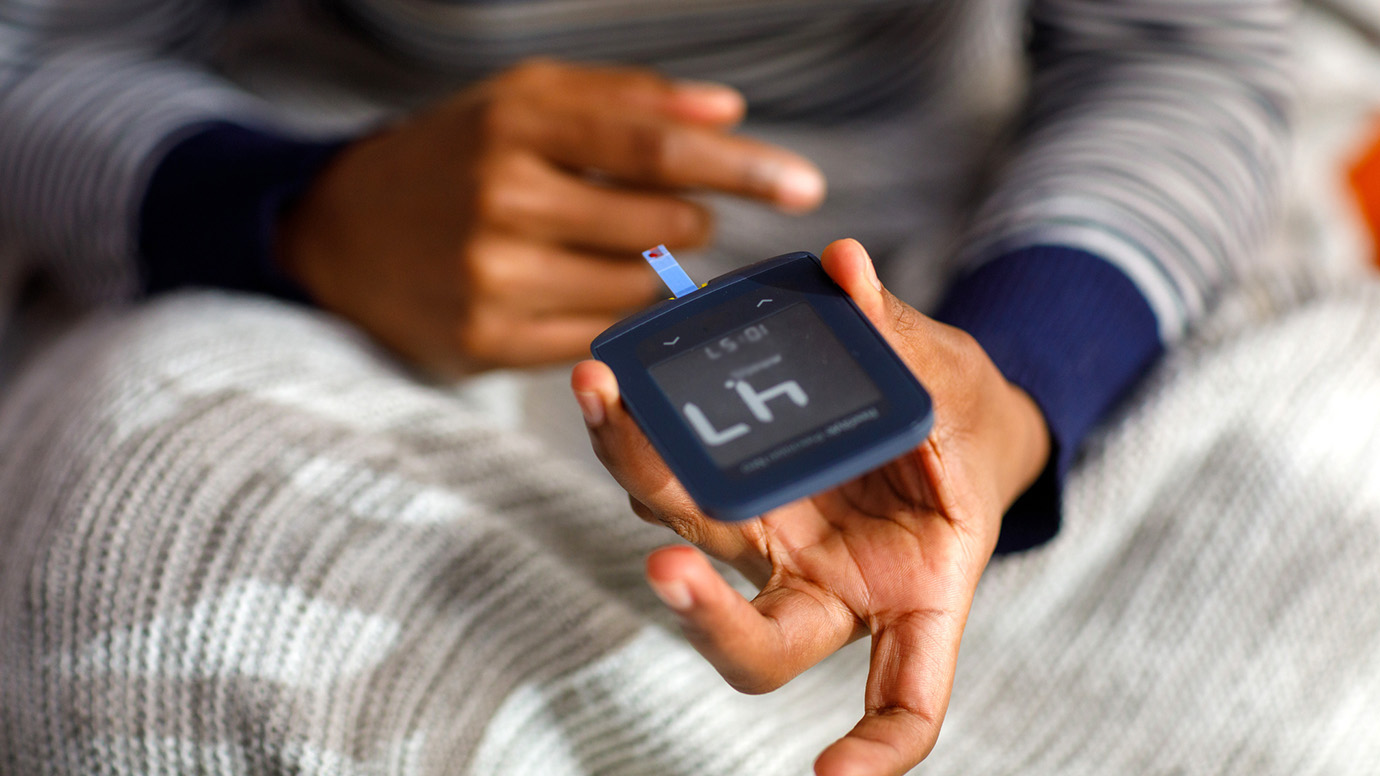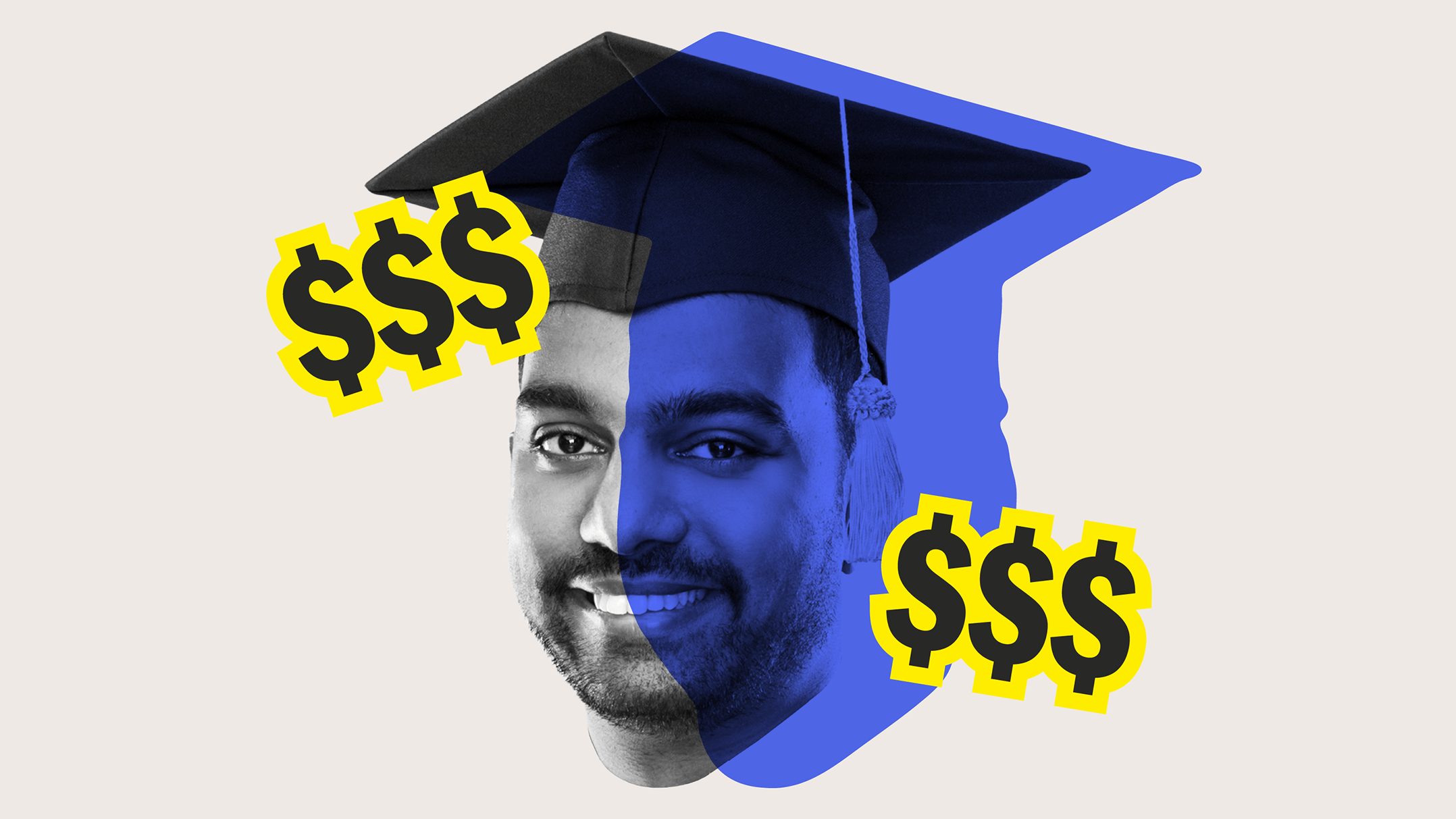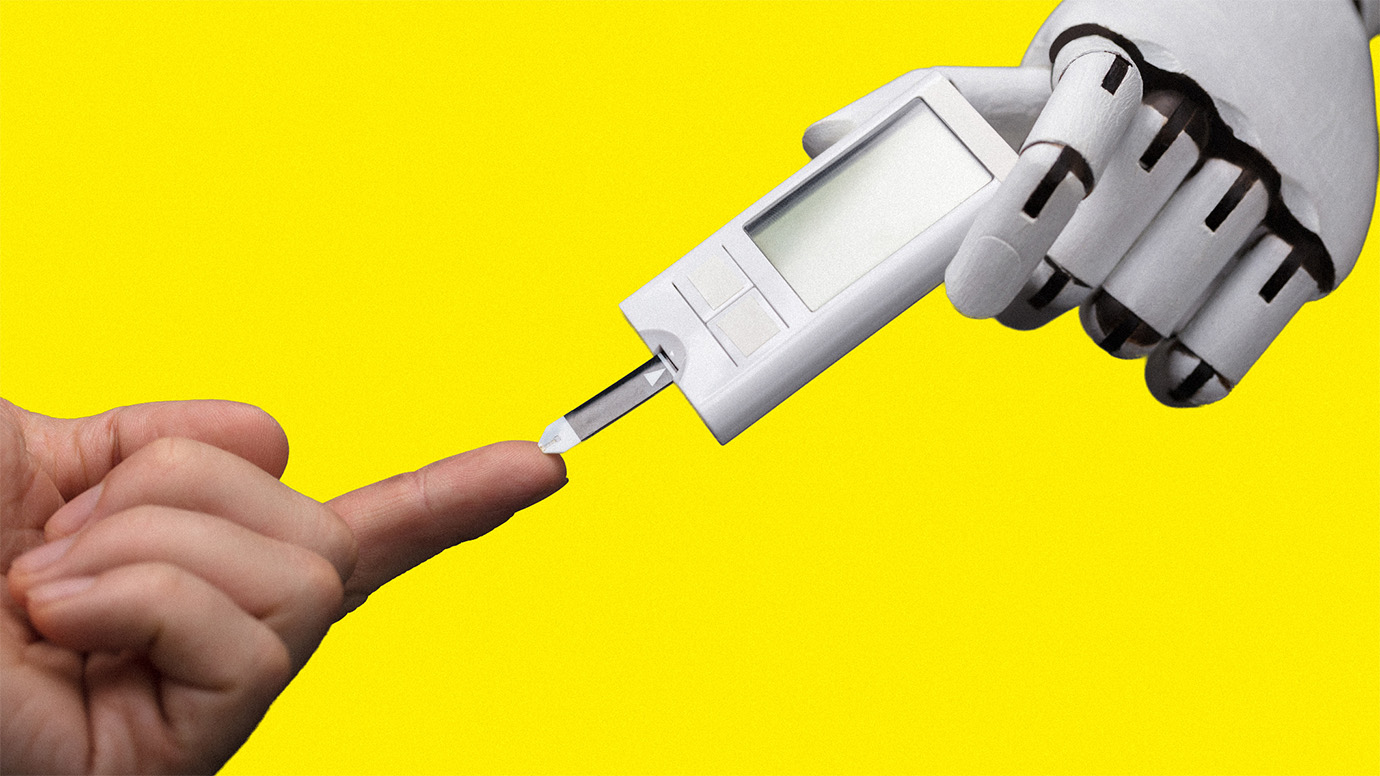Community Table: The Golden Years: Living Well at All Ages with Diabetes
Written by: Beyond Type 1 Editorial Team
6 minute read
May 24, 2022
Community Table is presented by the JDRF-Beyond Type 1 Alliance and made possible with support from Abbott Diabetes Care, Dexcom, Lilly, MannKind, Medtronic, Omnipod, Roche Diabetes Care and Tandem, active partners of Beyond Type 1 at the time of publication
During our twelfth Community Table discussion in 2021, Beyond Type 1 sat down with a group of experts and community members to discuss how to live your best life with type 1 or type 2 diabetes no matter your age, and share helpful resources and personal perspectives. Watch the discussion in full!
Speakers included:
- Tiana Cooks, who served as the moderator for this event and has had type 1 for seven years, is the community manager at Beyond Type 1.
- Michelle James has had type 1 since 2005.
- Robert Lewis, who has had type 2 diabetes since 1998, is a chef and culinary arts instructor.
- Ana Borthwick, who has had type 1 since 2006, is a translator, teacher and interpreter.
- Fran Kaufman, M.D., has worked in the diabetes field since 1978 and now works as the chief medical officer at Senseonics.
The partial transcript below has been edited for clarity and length.
What are the most significant, or surprising, changes in how you’ve managed your diabetes since you were diagnosed?
Robert: When I was diagnosed, I met with a dietician who gave me a list of 3,425 foods I could never eat ever again. The fact that now we say, “Eat what you like, but eat in moderation. Control your portions, do your exercise, see your doctor, check your blood sugar,” is super helpful.
I like to think of my blood glucose monitor as my little miniature laboratory for me to gauge how I’m doing. Eating has really evolved from when I was first diagnosed.
Ana: It’s access to technology that has made a huge difference for me. It’s not just the technology itself, but being able to afford it or to have a healthcare system that provides technology, which is hard to come by in Latin America.
Let’s be honest, I’m a lucky one. I’ve got a continuous glucose monitor (CGM), I’ve got a pump, but most people [around the world] don’t even have meters. Having gained access to technology has made a great difference to lots and lots of people.
Michelle: My biggest change was finding the diabetes community, the community is what opened my eye to the different technologies out there. For me, diabetes is a fact of life, it’s not the forefront of my life. I was only exposed to one type of technology. Because of the community, my eyes were opened to everything else that was out there.
Dr. Kaufman: When I started my career, the concept was that as a physician you should be telling your patients what to do, how to live their lives, what to eat, what to take and you are the one in charge. And, of course, nothing could be more fallacious than that concept.
With my hundreds and thousands of patients, I’m not the one living with diabetes. I have to be able to help them get through the phases they’re in, get through what they’re willing to do or not do at any point in time and support them. I’m not the captain of the ship, I’m not even the co-pilot. I’m somewhere in the back, loading all the information onto that ship and listening to all the different issues. That way everybody with diabetes can figure out what this journey is for themselves, and make their journey the best they can in the context of their own lives.
When discussing diabetes with your healthcare provider, what conversations have changed over the years?
Michelle: Be your own advocate. As Dr. Fran said, healthcare providers are not the captain, but there is a partnership there. You have to be open to talking. The doctor that I have now is even more engaging than my previous providers, which helps me be more open with that person. You have to be honest. If that partnership is not going to work, that doctor is not going to be able to advise you well. That’s when it starts sounding like they’re really trying to control your life when that’s really not what they’re there to do or want to do.
I also have the diabetes community and when you hear others’ stories you realize, “Maybe I should be asking about this. Maybe I need to pay attention to this. Maybe I need to talk about this.”
Robert: Educate yourself and come with a list of questions. I’ve trained my endocrinologist to be ready for my questions.
I had a really great general practitioner who helped me through my initial stages, but he was not an expert in diabetes and was not very proactive. I said, “I’m going to find myself an endocrinologist who can try to make a difference in my life.” If you feel like your doctor isn’t a good fit, find yourself someone you can relate to better, who you can have a relationship with—someone who is proactive along with you.
Ana: The best decision I made was to change doctors. With my current endo, I’m a whole person. I’m Ana. I’m not just a dysfunctional pancreas. That has made quite a difference.
We are partners, and he knows that I have to make all my decisions every single day. He has trained me to do it wisely and if I’m in doubt, I text him and he will text me back and say, “Do this,” or, “Do the other thing.”
When diabetes gets you down, what steps are you taking to reset mentally?
Michelle: I’m really big on self-care. I let my work know I am taking a diabetic day, whether it be physical or mental. I am taking a diabetic day and don’t be afraid to do that. It’s okay to just take a step back, close off everything if you need to, and just take a mental break.
But you also have to think about it in the sense that if you’re working a 9:00 to 5:00 and you get sick and you’re not able to come back to work, they’re not going to come home and help you take care of what’s going on in your home.
Ana: You take a day off. I take a day off and cook, go for long walks, or crawl into bed with a good book. Be open about it and say, “I need time off.”
Dr. Kaufman: Number one, find somebody you can talk to. Whether it’s your parent, your spouse, your best friend; you need someone to be able to unload with. Life’s about a pyramid of people, up at the top, there are very few people where you can really pour your heart out, who love you so much. They’ll listen and really try to help.
Additionally, often at the very top of that pyramid is a mental health professional and it all depends on where somebody is, whether or not they need mental health intervention or medical intervention. Knowing there’s somebody who will listen to you and not judge you and maybe bounce back, “Why do you feel that way? How did you come to that conclusion? Do you think that’s the best way to approach this?” Mental health professionals can be a sounding board can also be really helpful.
Tiana: I talk to my parents when I’m having tough days or someone who really understands my diabetes the most. Also, don’t be afraid to talk to a mental health professional if you feel like that’s the next step for you. Diabetes is challenging and it comes in waves.

Author
Beyond Type 1 Editorial Team
This piece was authored collaboratively by the Beyond Type 1 Editorial Team.
Related Resources

A diabetes diagnosis doesn’t mean your sex life is off-limits. It's still yours to enjoy—just...
Read more

Insulin is the main hormone your body uses to control how much sugar is in...
Read more

If you have diabetes, you know insulin affects low blood sugar (hypoglycemia), but it’s not...
Read more

